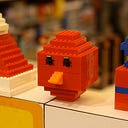The “Grasping the Concept” Model
Four thematic areas of Concept Development
In Nov 2023, I edited a book titled Grasping the Concept: The Territory of Concepts and Concept Dynamics.
The phrase “Grasping the Concept” was inspired by Andy Blunden who is the author of Concepts: A Critical Approach. In Nov 2020, we had a short thematic conversation about concepts via Gmail. He used “… grasped with two different concepts…” to review two different views of Activity Theory.
I realized that “Grasping the Concept” was essential to the Concept-related practice.
I also used “Grasping the Concept” to name a related model:
From Sept 9, 2023, to Nov 20, 2023, I worked on a case study about the concept of “Mindset” in the field of psychological knowledge engagement. A by-product of the case study is the “Grasping the Concept” model. See the above diagram.
The model highlights four types of thematic spaces which refer to four sociocultural areas.
- Theoretical Psychologists — The THEORY thematic space
- Empirical Psychologists — The END thematic space
- Intervenors — The MEANS thematic space
- Actors — The PRACTICE thematic space
In a given field such as psychological knowledge engagement, there are four major sociocultural areas. Each area has its own logic of the Means-End relationship.
- Theoretical Development -> Setting the Term
- Empirical Research -> Bounding the Case
- Intervention and Curation -> Capturing the Theme
- Life Reflection -> Weaving the Mind
The model was based on the Knowledge Discovery Canvas. See the diagram below.
From Sept 2023 to Nov 2023, I worked on a project about the concept of Mindset. You can find more details in the following articles:
- The Concept of Mindset and Theoretical Integration (48 min read)
- The Concept of Mindset and Empirical Psychologists (27 min read)
- The Concept of Mindset and Intervenors (28 min read)
- The Concept of Mindset and Actors (39 min read)
In these articles, I used the Knowledge Discovery Canvas to discuss four types of actors and test the Mental Tuning framework. For example, you can find some examples below in Psychological Knowledge Engagement and Robert Kegan’s Knowledge Enterprise (59 min read).
I used the Knowledge Discovery Canvas to discuss four types of actors and four types of thematic areas.
- Theoretical Psychologists — The THEORY thematic space
- Empirical Psychologists — The END thematic space
- Intervenors — The MEANS thematic space
- Actors — The PRACTICE thematic space
In general, Theoretical Psychologists think and work with the following perspective.
- Construal Levels: Meta-theory or the most abstract level
- Practical Interests: The progress of the discipline as a meaningful whole
- Points of Observation: The “Concept — Theory” Move
- Methodological Preferences: Concept Analysis and Formal Representation
- Expressive Conventions: Mathematical formulas or Conceptual frameworks
Empirical Psychologists move to a different position and they have a different perspective:
- Construal Levels: Specific-theory or abstract models/frameworks
- Practical Interests: Develop a particular innovation concept or framework for the discipline
- Points of Observation: The “Perspective — Framework” Move
- Methodological Preferences: methods for Empirical Research, such as laboratory experiments
- Expressive Conventions: Conceptual frameworks and data charts
Intervenors also have their specific needs for psychological knowledge engagement:
- Construal Levels: concrete models/frameworks and related test tools
- Practical Interests: Develop a particular intervention program for behavior change or related education
- Points of Observation: The “Methods — Heuristics” Move
- Methodological Preferences: methods for design, communication, test, report, etc.
- Expressive Conventions: face-to-face communication and questionnaire test
While Actors come from various domains, they share a primary theme: Subjective Experience. For Actors, psychological knowledge engagement is all about understanding their own subjective experience and making sense of their life situations, either stressful or enjoyable.
- Construal Levels: concrete models/frameworks, simple heuristic tools, etc.
- Practical Interests: learning for work or reflecting on life experiences, solving own problems, etc
- Points of Observation: The “Work — Project” Move
- Methodological Preferences: reflection, discussion, reading, etc.
- Expressive Conventions: face-to-face communication, metaphorical words, storytelling, etc.
The previous articles discussed four types of psychological knowledge engagement under four types of roles. In the real-life world, people can move between these different areas. A person could engage with psychological knowledge in different situations.
Let’s use Robert Kegan’s creative life as an example to see a multiple-role psychological knowledge enterprise.
From 1982 to 2016, he moved from theoretical development to practical applications. His early two books were published by Harvard University Press, his late books were published by Harvard Business Review Press and other publishers.
There is no boundary in his journey of engaging with psychological knowledge. You can find more details in the link below:
The Grasping the Concept Model was born on Nov 19, 2023. You can find the original situational note here:
The Enter-Exit Tendency
The Canvas uses “Enter” and “Exit” to define four thematic Knowledge Discovery Activity areas.
The “END” Area means “Producing New Knowledge for Public World” while the “MEANS” Area means “Using Knowledge for My Practical Projects”.
So, there are only two ways of “Exit”, you make knowledge for the public, or you use knowledge for your projects.
The “Enter—exit” tendency is a general principle of the Activity or Project.
If we run a project that belongs to one type of eight of activity, we need to pay attention to the “Enter-exit” tendency.
Many significant decisions are about selecting the Enter and the Exit.
I also use the concept of “Projectivity” to understand a related issue: the possible opportunity behind the Enter-exit tendency.
Concept-related Knowledge Engagement
In Sept 2024, I developed a typology of Concept-related Knowledge Engagement by using the Grasping the Concept model.
The typology was developed for the “Frame for Work” project which is about the social practice of knowledge frameworks.
There are two types of frames behind the “Frame for Work” project.
- Frame 1: Knowledge Frameworks
- Frame 2: Social Practice
For Concept-related Knowledge Engagement, Frame 1 refers to developing a concept system into a knowledge framework, Frame 2 refers to understanding a concept system behind a social practice.
I start from the four thematic areas and identify eight types of activities.
The THEORY Area
1. Theory-building
2. Theoretical Integration
The END Area
3. Frame for Research
4. Methodological Empathy
The MEANS Area
5. Knowledge Curation
6. Programming Intervention
The PRACTICE Area
7. Modeling the Project
8. Thematic Exploration
You can find more related articles in [Frame for Work] Kinds of Concept-related Knowledge Engagement.

